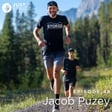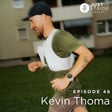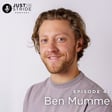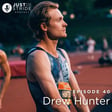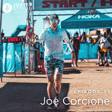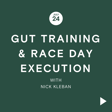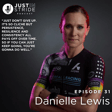
Cam Charbonneau on mental skills and how it impacts performance, proper intensity, finding confidence, understanding where you're at, listening to your body, positive self talk, goal setting and planning
As the end of 2023 approaches, it’s fun to look back and see everything we’ve been through. The wins, the loses, the challenges, the triumphs, the hardship and the moments of joy. Personally, as much as I use this time to reflect on the past, I also love to learn from those experiences and see how I can improve moving forward.
On this episode of Just In Stride we uncover some valuable tools with Olympic lifter, runner and mental skills coach, Cam Charbonneau.
She’s been a high performance athlete her entire life. Whether it’s rugby, lifting, martial arts or running, Cam always strives to train and perform at the highest level.
As a professional mental skills coach, she gets to share her own experience with others and help athletes navigate their own mental struggles, allowing them to achieve optimal performance. We covered a wide range of topics from self talk, to confidence, planning, goal setting and recovery too, all of which can be applied in many aspects of life, not only sports.
Cams Offer to You: If you'd like to purchase her Performance Planner: Inner Pace, you'll get 30% OFF when you use promo code JUSTINSTRIDE Innerpace (myinnerpace.com)
-------
Offer from Xact Nutrition: This episode is presented by our friends at Xact Nutrition and they are offering you 15% OFF your order when you use the code JUSTINSTRIDE. So head to xactnutrition.com and fuel your goals today! Now shipping in Canada and the U.S.
Thanks for tuning in to the Just In Stride Podcast. I truly appreciate you taking the time to listen and I hope you enjoyed that conversation as much as I did. Please take a minute after this to rate and review our show on Apple Podcasts. With your feedback we’ll be able to make the show even better and it’ll help us reach new listeners too. You can also find us on Instagram @justinstridepod and YouTube @justinstridepod for all the latest episodes and updates. Glad you came along for the ride with Just In Stride!
